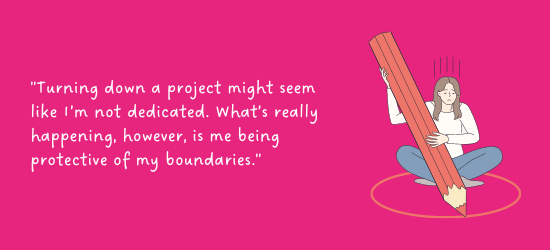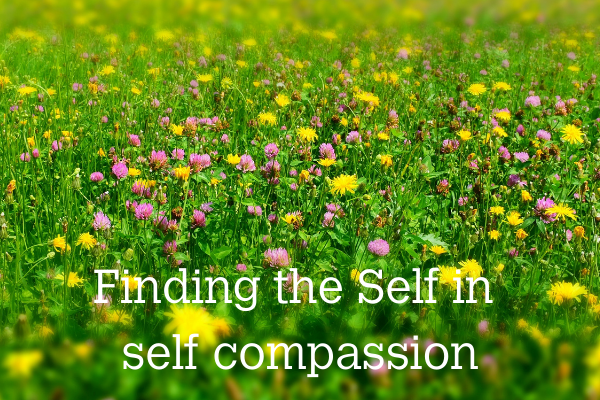Pushing yourself: when it becomes toxic positivity
Written by Melanie, our guest blogger. Want to write a blog post for us? Email us at marketing@thecellartrust.org
We live in a society where pushing yourself hard is considered something to be celebrated. “Meet your limits head on and drive through them”, we’re told. That’s all we need to do to reach some empyrean form of ourselves defined by society. The thing we all supposedly want to attain.
This mentality is championed and anyone who doesn’t subscribe to it is seen as unmotivated, even apathetic. They obviously don’t want to really reach their goals if they’re not willing to just make a concerted effort, do they?
Limit-pushing can be helpful to people, in some situations; it’s important to understand that the idea isn’t toxic in itself. It only becomes a problem when it’s expected from everyone, all of the time. Imposing this idea onto people with mental illnesses, to whom limits are often the things keeping them stable and safe, can be dangerous.
Everyone’s plate is a different size. In fact, some people’s plates shrink and grow depending on how they’re feeling at the time. I definitely fall into the latter category, as I have Bipolar Affective Disorder and Generalised Anxiety Disorder. Managing these two comorbid conditions really requires me to be constantly mindful of how much of my plate is free for tasks outside of coping with my disorders.
It takes a lot of energy to challenge the behemoths of depression, hypomania, psychosis, anxiety, and all of the other things I experience. That isn’t just mental and emotional energy, but physical too; it’s tiring. To be well, I have to make sure I take time for myself and keep a good schedule of rest, sleep, relaxation time, healthy eating.
To outsiders looking in, if I choose to go home early from an event, I might seem like a killjoy. If I decide to skip a party, I’m being anti-social. Turning down a project might seem like I’m not dedicated. What’s really happening, however, is me being protective of my boundaries. I’m always thinking about exactly just how big my plate is and how full it can be at any given time. I also have structures in my days I need to be respectful of; I have alarms to take my medication at certain times, I have other alarms to remind me to stop eating to ensure I’ve 2 hours clear before taking them. This is all part of my day that’s necessary.
As positive as it can be sometimes to push yourself that little bit more, it’s not necessary if you feel like it will be detrimental to your wellbeing.
Does this mean we as sufferers should never give ourselves a little push from time to time? Of course not. The important point is: I’m the expert in knowing what works for me, when it’s okay to push, and when to forgive myself an evening on the sofa watching cartoons and taking a nap.
I’m only my own expert through lots of trial and error. Sometimes I’ve taken myself somewhere, only to realise when I got there that I’d made a mistake. I’ll feel drained of energy, I won’t be at my best and because of that I’ll feel worse than I did in the first place. If I continue to push myself and don’t bring the portcullis down to “close for business”, it will snowball to the point I can’t control anything anymore and I’ll end up in crisis. Many times I’ve said “sure!” to taking on more work when the voice in the back of my mind is groaning with frustration at me as it’s preparing to hunker down for an almighty crash. It was the wrong decision and I always try to learn from it.
The thing is, my first instinct used to be to tell myself “I just need to get up and go, I’ll be fine when I get there”, fully subscribed to a mindset that’s drip-fed to us day in and day out from a young age. I’m sure the majority of us have been given this piece of advice at some point and it’s a very hard lesson to unlearn. There ends up being a sense of obligation and if I duck out, I’ll feel guilt. I’ll feel like I took the easy way out and didn’t make the effort I should have.
That word, “should”, is often a troublesome one. It’s a word I had to wrestle with for a while after I was first diagnosed with Bipolar Affective Disorder, as I realised it had been a stealthy enemy for a long time. Many times I’d gone somewhere, agreed to do something or taken on more work because I probably should. I began to question…who said so?
“If you don’t push yourself, who will?” quizzed a motivational message I scrolled across on social media. I feel a pang of shame before I remind myself that safeguarding my stability is more important to me than proving something to other people. By the same token, if I don’t patrol my boundary walls and protect my wellbeing, who will? There’s a definite obligation to be constantly striving to be “doing”, and those of us with mental illnesses are unwillingly cloaked under the blanket.
So how do we know when it’s time to get up and shake ourselves, and when it’s time to have a duvet day? There aren’t any hard and fast rules I can offer here, even to myself. I can’t create a checklist of which specific tasks I should and shouldn’t avoid and when; it’s too nuanced for that. It’s about feeling it. Patterns can start to emerge that we can learn from, then it’s possible to feel when it’s the right thing to give yourself a shove, or when it’s sofa time.
The guilt also continues to ease, as I remind myself of what happens when I don’t respect my illness. The memories of not being well because I didn’t listen to my brain serve as a vivid warning. I realise it’s not a choice, it’s a necessity.
Some convictions begin with roots of the most positive intentions. I’m sure there’s a well-meaning heart at the centre of the “push yourself” message; it’s designed to impress upon us the idea that we’re capable of so much more than we imagine. Sometimes though, the things we should be proud of are setting limits. For some, drawing a line in the sand takes just as much strength and courage to drag that stick with intention and purpose, as it does for someone else who’s challenge is to scuff their line out and move beyond it.



